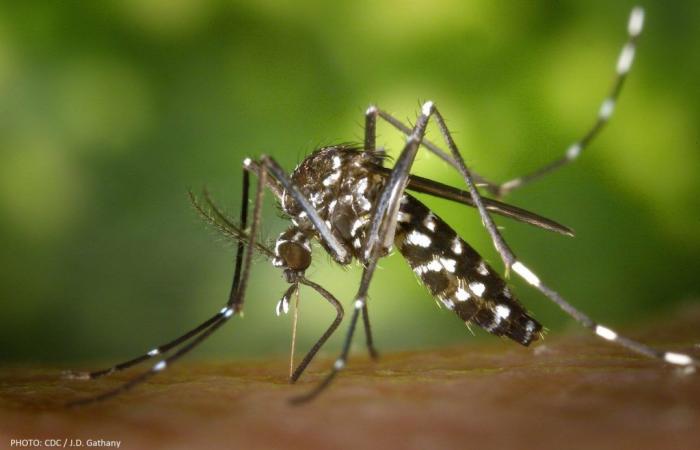The tiger mosquito does not scratch, but it is still fierce. This blood-sucking insect is a vector of diseases such as dengue fever, the Zika virus and Chikungunia. It is already present in the cantons of Vaud, Valais and Ticino and risks settling in Neuchâtel. The authorities therefore invite residents to participate in the fight against the arrival ofAedes albopictus, from its Latin name. Traps had already been installed in 2019 on the La Tène site to detect the possible presence of females ready to lay eggs. The risk of development of this species on the cantonal territory is present according to the scientific collaborator of the Wildlife, Forests and Nature Service Robin Berger: “If they have the appropriate temperatures and nesting sites, they will grow even in the heights,” he says.
Remove spawning grounds
This species reproduces in stagnant water in a rather urban environment. Watering cans, cups and places where small volumes of water stagnate are its favorite places to deposit its eggs. But it can also proliferate in containers of all kinds in gardens and balconies, also in unmaintained gutters. However, it does not normally breed in natural bodies of water such as ponds or pools, as some of its predators are found there.
It is therefore recommended to go around its exteriors in order to empty the water from its containers which are potential laying places for the tiger mosquito.
Report their presence
Another effective measure to combat the proliferation of this ferocious insect which bites even during the day is to report any suspicious presence on the national platform dedicated to this purpose. Robin Berger describes this animal as: “A mosquito that has striped legs and a white line on its thorax. »
Not yet a public health problem
The tiger mosquito is smaller than a five-cent coin and can be recognized by its white and black lines on its legs and its white line that crosses its thorax and head. The Cantonal Public Health Service (SCSP) has observed in recent months a slight increase in cases of dengue fever in people returning from travel to countries affected by this disease. However, these cases do not yet constitute a public health problem, as long as the tiger mosquito is not established in the region.
Additional information is available on the canton’s website. /yca
#Swiss






